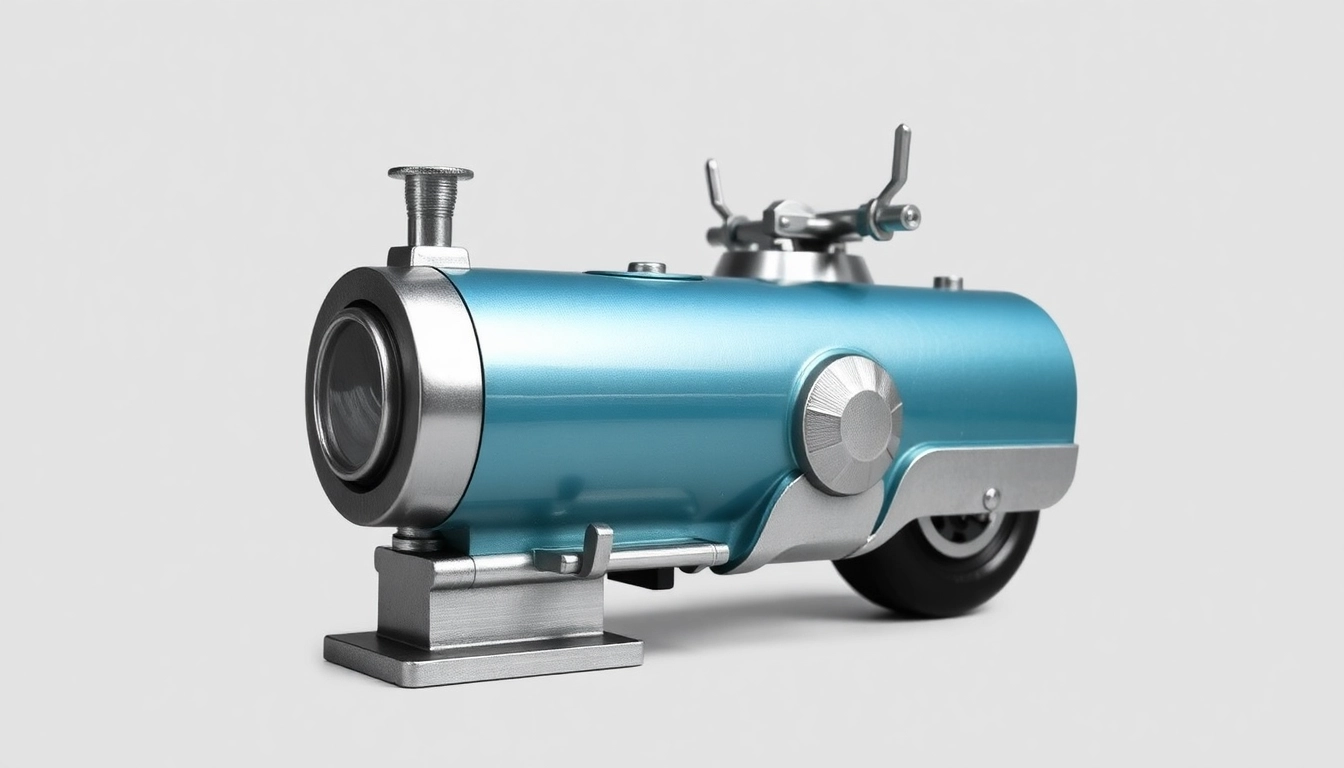Understanding Level 5 Lifting Operations
What is Level 5 NVQ in Lifting Operations?
The Level 5 NVQ Diploma in Lifting Operations is a prestigious qualification designed for individuals who aspire to supervise and manage lifting operations in construction and related industries. This qualification is vital for professionals looking to advance their careers in roles such as lift supervisors, site managers, and appointed persons under lifting operations regulations. It encompasses a comprehensive understanding of planning, executing, and evaluating lifting operations safely and effectively.
Through this qualification, learners are equipped with the theoretical knowledge and practical skills required to manage complex lifting tasks. They develop a keen awareness of the responsibilities associated with lifting equipment and the laws governing their use. Therefore, obtaining a Level 5 diploma opens up significant opportunities in fields where heavy lifting is commonplace, such as construction, manufacturing, and logistics.
Significance of Level 5 Lifting Operations Answers
Securing a Level 5 qualification requires passing a series of assessments, which often includes practical exams and theoretical knowledge tests. The Level 5 lifting operations answers serve as essential resources that provide candidates with examples of what to expect in their exams. These answers can clarify concepts, assist in understanding practical applications, and ultimately enhance candidates’ confidence as they prepare for their assessments.
Additionally, utilizing these answers promotes a deeper comprehension of industry standards, safety regulations, and operational procedures, which are crucial for success in the field. Knowledge of lifting operations extends beyond just passing exams; it is fundamental to ensuring safety and efficiency on-site.
Key Topics Covered in the Level 5 Curriculum
The curriculum for the Level 5 NVQ in Lifting Operations is comprehensive and covers various topics crucial for effective lifting management. Key areas include:
- Health and Safety Regulations: Understanding the legal frameworks and safety standards that govern lifting operations.
- Lift Planning: Developing lift plans, including risk assessments, equipment selection, and logistical considerations.
- Crane Operations: Gaining insight into different types of cranes, their specific uses, and operational requirements.
- Load Dynamics: Understanding how to calculate loads, determine the center of gravity, and anticipate load behavior during lifts.
- Communication and Team Leadership: Skills for effectively communicating with team members and managing lifting operations.
These topics form the backbone of the Level 5 qualification and ensure that graduates are well-equipped to handle the responsibilities of their positions.
Preparing for the Level 5 Lifting Operations Exam
Effective Study Strategies for NVQ Assessments
Preparation is vital for success in the Level 5 lifting operations examinations. Here are some effective study strategies:
- Develop a Study Schedule: Plan your study time well in advance, allocating specific times for each topic covered in the curriculum.
- Utilize Practice Tests: Engage with practice questions and previous exam papers to familiarize yourself with the format and types of questions that may appear.
- Create Study Groups: Collaborate with peers to exchange knowledge and tackle challenging topics together, benefiting from diverse perspectives.
- Stay Engaged with the Material: Use various learning resources, including videos, textbooks, and online courses, to keep your study dynamic.
By adopting these strategies, candidates can increase their understanding and retention of complex material while gaining confidence for the assessments.
Practicing Sample Questions and Answers
Practicing sample questions is an invaluable method to prepare for the Level 5 exam. These practice questions can help identify areas of strength and those needing improvement as they simulate the exam environment. Candidates should focus on:
- Understanding the wording of questions and directives.
- Checking answers against provided solutions to grasp the rationale behind correct answers.
- Time management while answering questions, ensuring completion within the allotted exam time.
Resources for sample questions can be found in textbooks, online platforms, and through study guides specifically for Level 5 lifting operations.
Common Pitfalls to Avoid in Your Preparation
Selecting the right preparation strategies is crucial, but knowing what to avoid is equally important. Here are some common pitfalls:
- Procrastination: Delaying preparation can lead to cramming, which affects retention and understanding.
- Neglecting Practical Knowledge: Focusing solely on theory can be detrimental, as practical application is key in lifting operations.
- Inadequate Revision: Insufficient review of materials before the exam can lead to missed information and understanding gaps.
By proactively avoiding these pitfalls, candidates can enhance their chances of success significantly.
Resources for Level 5 Lifting Operations Answers
Where to Find Study Materials and Guides
Accessing the right study materials is essential for exam success. High-quality resources may include:
- Official NVQ Guidelines: Websites such as the SQA or relevant industry bodies often publish official guidelines and standards.
- Educational Publishers: Many publishers produce textbooks specifically designed to meet the curriculum requirements for Level 5 NVQs.
- Online Course Platforms: Several e-learning platforms offer tailored courses and resources that align with the NVQ in Lifting Operations.
These resources provide a comprehensive foundation that covers all necessary study areas.
Online Forums and Support Groups
Engaging with online communities can provide tremendous support during your study journey. Here are ways to benefit from these platforms:
- Participating in forums dedicated to lifting operations, where individuals share experiences, tips, and resources.
- Joining social media groups focused on lifting qualifications, allowing interaction with fellow candidates and professionals.
- Seeking mentorship from industry professionals through networking opportunities.
These interactions can offer real-world insights and invaluable support that enrich the learning experience.
Utilizing Video Tutorials and Workshops
Video tutorials and workshops can augment traditional learning methods by offering visual and practical demonstrations. To leverage this resource:
- Seek out reputable online platforms that provide comprehensive video content related to lifting operations.
- Attend workshops led by experienced professionals that cover specific practical skills and industry best practices.
Using multi-faceted learning can create a deeper understanding of complex topics, making retention easier and more engaging.
Real-World Applications of Lifting Operations Skills
Case Studies from the Construction Industry
Understanding the application of lifting operations in real-world scenarios can provide clarity and context to theoretical knowledge. Here are a few illustrative case studies:
In one instance, a construction company implemented a new crane system for high-rise building projects. The project required comprehensive lift planning involving risk assessments, site assessments, and detailed communication protocols. The positive outcome included reduced downtime and enhanced safety protocols resulting from having a qualified Level 5 supervisor overseeing the operations.
Another case study involved an infrastructure project requiring the placement of heavy machinery in confined spaces. The appointed person utilized advanced rigging techniques learned during their Level 5 training, successfully completing the operation without incidents.
Implementing Safety Practices in Lifting Operations
Safety is paramount in all lifting operations. Implementing effective safety practices is a crucial skill developed through the Level 5 qualification. Essential safety practices include:
- Conducting regular risk assessments and safety audits to preemptively identify potential hazards.
- Ensuring all team members are appropriately trained and knowledgeable about lifting safety standards.
- Establishing clear communication protocols to facilitate prompt reporting of any safety issues.
Embedding these practices into company culture significantly reduces the likelihood of accidents and enhances overall worksite safety.
Career Opportunities with a Level 5 Qualification
Graduates of the Level 5 NVQ in Lifting Operations can pursue various impactful careers within the construction and related industries. Some potential career pathways include:
- Lift Supervisor: Overseeing all lifting operations on-site, ensuring compliance with safety regulations.
- Site Manager: Managing entire construction sites, including lift operation teams and equipment logistics.
- Lifting Operations Consultant: Providing expert advice to companies on best practices for lifting operations.
- Trainer or Assessor: Educating new entrants in the field about lifting safety and operational procedures.
The advanced skills and knowledge acquired through this qualification not only enhance employability but also position individuals for leadership roles within their organizations.
Staying Updated on Lifting Operations Regulations
Overview of Industry Standards and Compliance
The field of lifting operations is heavily regulated, and staying informed of industry standards is essential for professionals. Key organizations such as the Health and Safety Executive (HSE) in the UK provide updated guidance on regulations and compliance requirements, ensuring that lifting operations are conducted with the utmost safety.
Professionals should also regularly review updates from industry associations, attend workshops, and participate in ongoing training programs to remain compliant with the latest standards.
Changes in Legislation Affecting Lifting Operations
Legislation surrounding lifting operations can evolve, necessitating continuous learning to adapt to new laws. Understanding major regulatory changes—such as modifications in safety standards for equipment, advancements in operator training requirements, and updates on liability frameworks—is crucial.
Staying abreast of these changes not only ensures compliance but also enhances the safety and efficiency of lifting operations.
Continuous Learning in the Lifting Operations Field
Continuous professional development (CPD) is vital for anyone involved in lifting operations. Engaging in periodic training sessions, workshops, and conferences helps professionals keep their skills sharp and relevant.
Encouraging a culture of learning within teams fosters a proactive approach to safety and operational excellence, reinforcing the importance of ongoing education in lifting operations.



